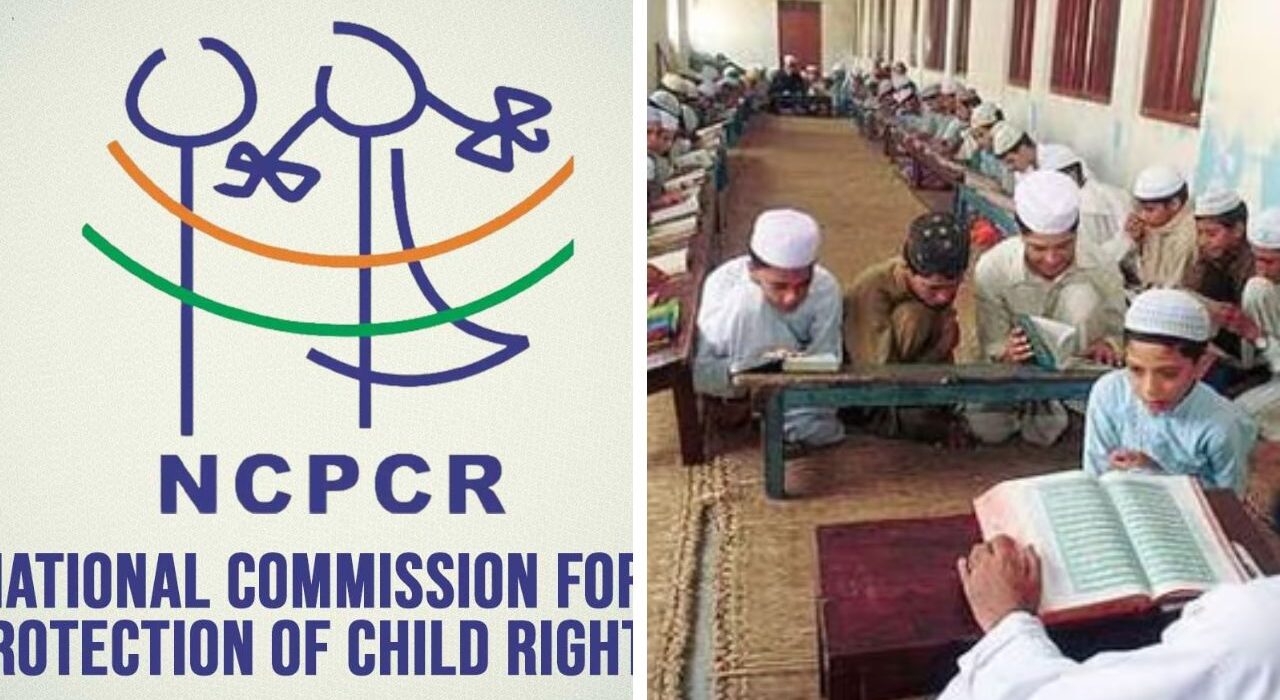National Commission for Protection of Child Rights or NCPCR has caused a stir in madrasa education across the country by recommending the stoppage of funding for all the madrasas in states and union territories.
The report, titled “Guardians of Faith or Oppressors of Rights,” discusses how the apparent conflict of children’s educational rights under the RTE Act is with the rights of minority communities. The report elaborates on the 11 chapters by declaring how madrasas have played a historical role and their impact on children’s access to formal education.
NCPCR chief Priyank Kanoongo stressed on the concept of “inclusive education” as envisioned under the RTE Act. Equality, social justice, and democracy can happen only there. The commission was worried that madrasas may not always be in conformity with all the requirements under the Act. Even having a Madrasa Board or a UDISE Code would not mean that the institution will automatically adhere to the RTE standards.
The NCPCR suggests the removal of Muslim children from madrasas and enrolling them in the formal school. Hence, it clearly demands to stop funding for all the madrasas in states and union territories. Apart from that, it asks the Muslim children to be enrolled in formal schools so that the government does not deprive them of education mandated by the RTE Act. However, both wordly and religious education are mandatory in Islam and Indian muslims do not go well with this decision.
While NCPCR argues for reform, the Maharashtra Cabinet has chosen a diametrically opposite line of action. They recently sanctioned a colossal pay hike for the teachers teaching in Madrasas. Now the D.Ed. teachers’ salaries are estimated to go up from Rs 6,000 to Rs 16,000 per month. Teachers of secondary subjects will see their pay reaching Rs 18,000.
NCPCR asks to stop funding for all the madrasas in states and union territories: Indian muslims against the decision
These recommendations of the NCPCR emphasize the integration of madrasa education with the traditional system. They maintain that it is the state’s responsibility to ensure full education for all children under the RTE Act. The report they submitted shows that madrasas lack the fundamental structures expected of them according to the Act, which ensures rightful education for children. However, enrolling their children in religious studies is the essence of the religion.
This discussion moves beyond funding madrasas. The Maharashtra Cabinet increased the share capital of Maulana Azad Minority Economic Development Corporation, which, again is not a matter to be under the ambit of NCPCR. The NCPCR maintains that issues relating to funding and issues of administrative reformation are essential to madrasa education.
Recommendations for it aim at making children studying in madrasas have the same opportunities that may have been available to those in regular mainstream schools. According to the commission, there is a necessity of policies in education that respect basic rights of the child.
The NCPCR report has also raised the debate on how to strike a balance between the rights of the minorities and the welfare of the children. Madrasa reforms have started witnessing increased interest from a host of stakeholders, such as state governments and the judiciary. The Supreme Court judgment in an ongoing case related to the Uttar Pradesh madrasas (SLP Civil No. 008541 of 2024) is going to make it even more explicit.
Also, see: MCX Gold Prices in India Touch New High After US CPI Data Release
